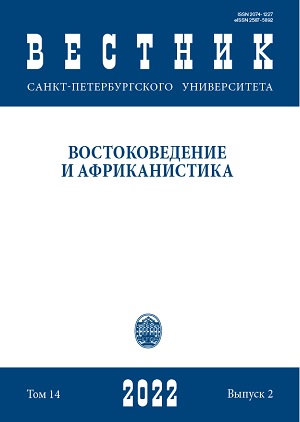The Neo-traditionalism of the Manden Charter
DOI:
https://doi.org/10.21638/spbu13.2022.203Abstract
The Manden Charter, according to tradition, was adopted in 1236 at Kurukan Fuga (Mali), after the victory of Sunjata Keita, legendary Mali ruler, over Sumaoro Kante, general of susu troops. It is a corpus of rules that was created to organize the Mali Empire. In 2009, UNESCO inscribed the Charter on the Representative List of the Intangible Cultural Heritage of Humanity. The Charter, like the Hunters’ Oath (1222), belongs to the oral tradition and was documented only in 1998. Therer are many oral variants of text. So there is controversy about its authenticity. Basing on the results of my previous research, it is safe to say that the Charter conveys the main social norms of Manden society and its social structure, however, it contains also some modern ideas. In Guinea, near Niagassola village, there is a place similar to Kurukan Fuga, where until recently the main Manden families gathered to make important decisions. Informants said that Sundiata himself was there also. The Charter may be even more significant today than it used to be, which is why it has become the center of attention both among the Manden peoples and abroad. Like every oral tradition the Charter makes changes in history, and this alternation of history is inevitable, because history is important not just for the past, but for present and future of the peoples. Today the Charter is an important element in Manden’s self-identification.
Keywords:
Manden, Charter, oral tradition
Downloads
References
Downloads
Published
How to Cite
Issue
Section
License
Articles of "Vestnik of Saint Petersburg University. Asian and African Studies" are open access distributed under the terms of the License Agreement with Saint Petersburg State University, which permits to the authors unrestricted distribution and self-archiving free of charge.





